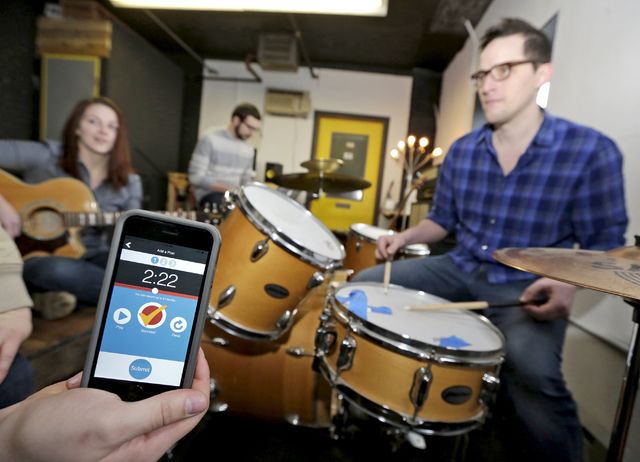Click here to subscribe today or Login.
WILKES-BARRE — An innovative procedure to treat symptoms of enlarged prostates provides men with a fast and relatively comfortable alternative to traditional prostate surgeries. The new procedure, which uses a permanent implant to open the prostate, was recently performed at Wilkes-Barre General Hospital, the first local hospital to complete it.
Dr. Michael Rittenberg, a urologist who practices in Kingston, completed three procedures using the UroLift System on Jan. 27. Before Rittenberg executed the procedure, the closest practicing specialist was in the Lehigh Valley. One week after the operations, all three patients reported improved urinary function, and Rittenberg believes the procedure will grow to be widely used among men who need it.
“We’re talking about men who have voiding dysfunction, inability to urinate normally,” Rittenberg said. “The most common cause of that is a disease called BPH, or benign prostatic hyperplasia, which affects 50 to 75 percent of men over the age of 50.”
The procedure uses a scope through the urethra to implant anchors, specifically designed medical staples, into the prostate to hold swollen tissue out of the way, allowing urine to flow properly and decreasing irritability, frequency and urgency.
“It literally pulls the tissue aside, so my layman’s analogy is like stapling the prostate open,” Rittenberg said. “Another analogy is if you have curtains that are coming down from a curtain rod, and you put a sash that pulls them aside, there’s a channel. The purpose here is to create a channel that allows the bladder to empty more efficiently.”
Traditional surgery, trans-urethral resection of the prostate, is still a viable option depending on a patient’s age, condition and medical history, but the UroLift System offers benefits other methods cannot; it’s minimally invasive and recovery time is shorter. Patients can recover fully within one to two weeks and tissue damage is low, Rittenberg said.
“The three patients … believe that they are doing well and believe that they are improved over how they were before the procedure,” the doctor said.
One patient, Warren Pollard of West Pittston, said he experienced some pain post operation, but it only lasted for a day and half, and he was able to get back to his normal routine quickly.
“The operation was 11 a.m. on a Wednesday,” Pollard said. “Thursday morning, I walked six miles, no problem.”
Pollard said he is experiencing “very little discomfort,” and his symptoms seem to be improving.
“I think the urine flow is better,” he said.
Pollard appreciated having surgery close to home.
While Rittenberg was the first to perform the procedure in the region, he said he is certain other urologists will use it over time.
“The first ones I did under general anesthesia, but I ultimately foresee us using just IV sedation, and in reality, for some people this might ultimately become a procedure that’s done in the office with just local anesthesia,” Rittenberg said.
Rittenberg said his goal is to provide a full range of services to his patients.
“I pride myself in being competent and experienced in all procedures that urologists do,” Rittenberg said. “So do people have to go out of town for any procedure? Not for urology procedures, because we do all of the latest procedures here. We have all of the latest equipment.”
The lasting quality of the procedure, Rittenberg said, will be revealed with time, although his intention is always to treat a patient once.
“We’re looking at a relatively short history of this procedure, but when you look at the goals and the outcomes in the short term, it’s pretty consistent in what we’d expect to see in someone who has the traditional surgery,” Rittenberg said. “In 10 years, we’ll know if any of these guys that I did last week will need some other treatment. My hope is no.”
The UroLift implant is an expensive procedure. Without the costs of anesthesia and operating time figured in, the implant itself can cost between $3,400 and $5,100, but Rittenberg said the procedure can have financial benefits compared to other forms of treatment.
“I see a great future in that in the era of economics and cost and insurances, medications are incredibly expensive,” Rittenberg said. “Many men, when faced with the option of taking one or two medicines that they’ll have to be on for the rest of their lives, might choose this procedure. Although it is expensive initially, it’s a one time treatment and it’s done.”










